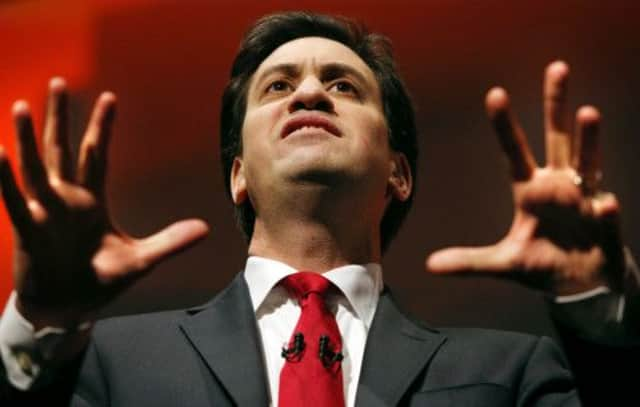Alistair Darling supports Lamont’s income tax plan


Mr Darling told The Scotsman that he is “very supportive” of the party’s devolution commission, which backed the move in an interim report to be published at Labour’s conference in Inverness this weekend.
Several senior Labour MPs oppose the policy shift and have called on leader Ed Miliband to block it.
Advertisement
Hide AdAdvertisement
Hide AdMr Miliband said the party would “have a conversation” about the issue, but would not say whether he backed the shake-up.
Mr Darling said that he had always been concerned that Holyrood could spend taxpayers’ cash without having the responsibility for raising it.
He said: “I’m fully supportive of the work done by the committee on devolution powers.
“I’ve always felt there was an issue with the fact that the Scottish Parliament can spend money, but doesn’t have responsibility for raising this.
“It’s well worth considering. I’m very supportive of the work of the commission.”
Some Labour MPs, including shadow defence secretary Jim Murphy, are understood to believe that the proposals to fully devolve income tax go too far.
Senior party figures at Westminster are also unhappy about what they say is a lack of consultation with the Parliamentary Labour Party (PLP) on the issue.
Deputy Scottish Labour leader Anas Sarwar moved to reassure disgruntled MPs yesterday as he said “nothing was set in stone” with Labour’s devolution commission.
Advertisement
Hide AdAdvertisement
Hide AdMr Sarwar, the MP for Glasgow Central, said that it was “not about MSPs versus MPs” as he dismissed claims of a power struggle between Holyrood and Westminster on the issue.
He said: “I serve on the commission and there’s a strong consensus that we’ll have a full and open debate on this. Nothing is set in stone. It’s not about MPs versus MSPs. There’s a consultation process and there will be a genuine open debate. The final decision is open to consultation.
“I’m pleased that colleagues are engaging in discussion.”
But two senior Labour MPs refused to say whether they would accept the complete devolution of income tax. Labour MP Gordon Banks said that “he was quite happy to look at the proposal” but would not state whether he backed the move.
He added: “The consultation process includes a serious consideration of these issues and I’m quite happy to look at the proposals. If we are devolving more powers, we have to look at how these powers can be put to beneficial use.”
Labour MP Michael Connarty also said that he was “happy to put that on the table” but did not set out his own position on income tax powers.
Mr Connarty added: “The commission is doing a great job. We have to debate the issue with the people of Scotland and talk about how we can improve devolution.”
Labour MSP Hugh Henry backed income tax powers saying “I don’t have any problem with this.”
The shadow education secretary added: “We’ve already got the devolution of some aspects of financial powers.”
Advertisement
Hide AdAdvertisement
Hide AdHowever, Ms Lamont had then appeared to rein back on the income tax plan yesterday ahead of the first day of conference saying it was the “beginning of a conversation” being held in the party.
Unions in referendum warning
UNION members will not be “bounced” into picking sides in the independence referendum, the Labour leadership has been warned.
Many are still undecided and need to be given positive reasons to be able to consider their vote, Unite’s Scottish secretary Pat Rafferty said at the Labour party conference in Inverness.
“We are being told by our members, many of whom are undecided, that they won’t be bounced into taking sides in this referendum,” he said.
Choices should be made on the impact it will have on public services, a progressive tax system and welfare. “We’re a decent society where the vast majority of us contribute to the common good,” he said.
Labour is campaigning for a No vote in the Better Together group.